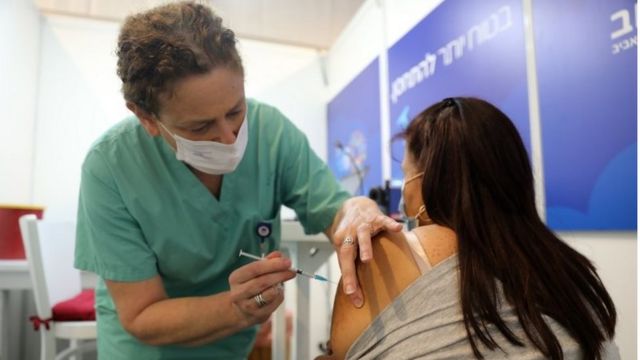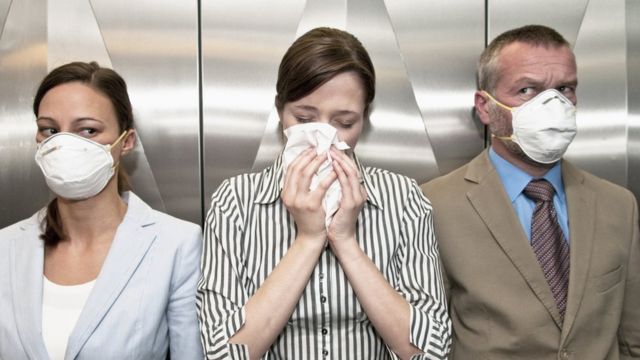Delta variant: 8 answers about the most contagious mutation of the coronavirus
Delta is considered more contagious than the original strain of the virus and other variants
The Delta variant of the coronavirus is already in over 100 countries and continues to spread rapidly. It is expected to become the dominant variant in the world in the coming months.
Because it is highly contagious, it is causing new outbreaks in some countries, especially among unvaccinated people. As a result, many governments have again imposed restrictions on their populations.
In the United States, for example, Delta is now responsible for 83% of covid-19cases . With less than half of the country's population fully vaccinated, the conditions are in place for the Sars-CoV-2 virus to continue to evolve and spread rapidly.
Here is what is known about the Delta variant and what to do to protect yourself.
1. What is Delta and how it differs from other variants
Viruses mutate all the time, and most of these changes are not relevant. But there are changes that can make the disease more infectious or dangerous, and these are the mutations that tend to predominate.
urrently, there are thousands of variants of the covid-19 virus circulating around the world. In the case of Delta, or B.1.617.2, first identified in India in December 2020, the virus underwent genetic alterations that allowed it to be more transmissible.
Data published by the British government indicate that Delta is between 40% and 60% more contagious than the Alpha variant (detected in England) and almost twice as transmissible than the original strain identified in Wuhan, China.
One of the transformations that allowed it to propagate more easily was in the protein S, or spike , the part with which it attaches to human cells.
2. Why is Delta so contagious?
Variant led to increase in covid-10 cases in UK
In addition to the greater efficiency in transmission, there are other factors that influenced the rapid spread of this variant around the world.
Breaches in border control and isolation measures were one such reason, relaxations that came at a time when the pandemic seemed to improve in certain countries and when many people were already tired of preventive measures.
Another important factor was the uneven distribution of vaccines around the world, allowing the variant to spread further in poorly immunized populations.
3. What are Delta's symptoms?
In the UK, where the delta variant was reported to be dominant in June, the most common symptoms reported were headache, sore throat and runny nose. Professor Tim Spector, an epidemiologist at King's College London, explains that young people infected with Delta can feel "like they have a bad cold".
According to the researcher, classic symptoms of covid-19 are proving less common with this variant, such as loss of smell and taste, cough and fever, according to data recorded by patients in an application developed by his team.
"Since the beginning of May, we have monitored the main symptoms of users of the application, and they are not the same as before", explains the expert, ahead of the research project Zoe Covid Symptom Study.
Fever is still fairly common, but loss of smell is no longer among the top 10 symptoms, he adds.
"This variant seems to work a little differently. People might think they just had a seasonal cold and they keep going to parties and could spread the virus to other people. We think that's creating a lot of the problem, says the epidemiologist .
Symptoms, however, seem to vary depending on whether the person has been partially or fully vaccinated—or not immunized at all.
4. Vaccination and infection
Vaccination in Israel; studies show efficacy of immunizers against severity and mortality from Delta variant infection
The US Centers for Disease Control and Prevention (CDC) says the greatest spread of severe cases is occurring in places with low vaccination rates. However, fully vaccinated people can also catch and transmit the virus to others.
"People who are vaccinated appear to be infectious for a shorter period," indicates the CDC. "The previous variants generally produced less virus in the body of fully vaccinated people than in unvaccinated people. On the other hand, the Delta variant appears to produce the same high amount of virus in both unvaccinated and fully vaccinated people."
The CDC indicates that infection in vaccinated people declines faster than in unvaccinated people, suggesting that "fully vaccinated people will be infectious for less time than unvaccinated people."
5. Vaccination and severity
Experts point out that, despite being designed based on older versions of the coronavirus, the immunizers are very effective in protecting the severity and death from covid-19. An analysis by the British Public Health Agency (PHE) found that two doses of the Pfizer or AstraZeneca vaccine were more than 90% effective against hospitalizations caused by the Delta variant.
Therefore, it is vital that people are fully vaccinated in order to obtain maximum protection against existing and emerging variants. Meanwhile, scientists continue to work on improving existing vaccines so they can protect against all mutations.
6. Does Delta require a booster dose?
For now, there are no data to support the need for a booster dose for the general population. Studies indicate that vaccination as it is generates a lasting immune response, with protection estimated in months and even years.
But faced with more contagious strains like Delta, scientists say more research is needed to answer the possibility of a booster vaccination.
On the other hand, the World Health Organization (WHO) warns that, before thinking about booster doses, the main concern must be that the majority of people in the world be vaccinated. There are countries where only 1% of adults received an immunizing dose.
7. Is Delta more dangerous for children?
In the United States, there have been reports in recent months of a gradual increase in the number of children hospitalized with covid-19. This raised the hypothesis that the highly contagious Delta variant might be responsible. But so far it is unclear whether Delta is causing an increase in pediatric cases or whether this variant causes more severe illness in children.
"There is no firm evidence that the disease is more serious (in children)," Jim Versalovic, acting chief of pediatrics at Texas Children's Hospital in Houston told The New York Times. "We're certainly seeing serious cases, but we've seen serious cases throughout the pandemic."
8. How to reduce the risk of becoming infected with Delta?
The Delta variant requires that we continue to adopt preventive measures against covid-19
Experts point out that, with what is known so far about Delta, it is necessary to continue with prevention strategies to reduce its transmission. For now, the best protection is vaccination, but as the CDC points out, "we should use all available strategies, including the use of a mask."
"Although vaccines are highly effective, they are not perfect, and infections will continue to occur even among those vaccinated," adds the US agency.
"This means that while the risk of infection in vaccinated people is low, thousands of immunized people will be infected and may infect others, especially with the rapid spread of the Delta variant. And that, in turn, will increase the chances of new variants emerging. worrying."





No comments:
Post a Comment